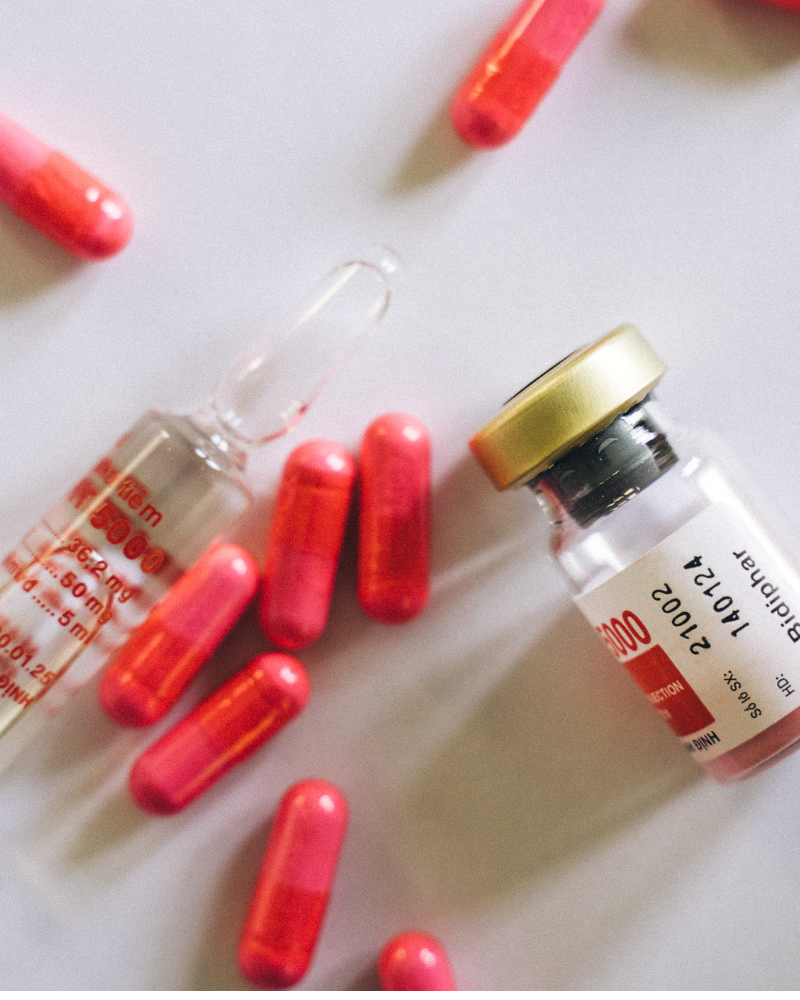Tavor addiction: An underestimated risk
Tavor, also known as Lorazepam, is a lifeline for many people in their darkest moments: when thoughts won’t settle, anxiety feels like a heavy weight on your chest, or sleep just won’t come. In these times, Tavor can feel like a small relief—a moment of calm in an otherwise stormy sea of emotions. But behind this quick relief lies a very different reality—one that many only recognize too late.
At first, it might seem harmless. You take it now and then to fight off nervousness or finally get a few hours of restful sleep. But your body, patient and adaptable as it is, gets used to it. Suddenly, it’s no longer enough. The dose that once helped you doesn’t work anymore, and you realize you need more to feel the same relief. Dependence creeps in like a subtle shadow—not overnight, but gradually, almost unnoticed.
You may never have really thought about how easy it is to become increasingly dependent on something that once helped you so much. Suddenly, you wonder what would happen if you stopped taking Tavor. Your thoughts race, your body feels unfamiliar, and you realize how hard it is to let go of this “friend.” It’s not just the physical withdrawal that torments you, but also the psychological pressure—the feeling that you can’t cope without the medication.
The problem is that dependence often develops quietly and unnoticed. You might think you’re in control—but in reality, the medication gradually takes over. What started as a short-term solution becomes an ever-greater challenge. That’s why it’s so important not to take Tavor on your own, but always with your doctor’s support. Only your doctor can help you find the right path—with a dose that’s appropriate for you, and a duration that’s as short as possible.
It’s not just about stopping the medication. It’s about regaining trust in your own body and mind. Tavor should never become a permanent solution, but only a temporary aid. And if you notice you’re relying on it more and more, it’s time to take a step back and work with your doctor to see how you can regain control.
You’re not alone on this journey. Even if it sometimes feels that way, there’s always a way out—and you have the power to find it.
Tavor personality change
Prolonged use of Tavor can lead to noticeable changes in personality for some people. Often, those around them observe that affected individuals appear more emotionally distant, show less interest in social activities, or withdraw from others. General apathy or a loss of enjoyment in previous hobbies can also indicate that the medication is having a strong impact on the nervous system. In some cases, sudden mood swings or increased irritability may also occur. These subtle signs should be taken seriously, as they could indicate an overdose or excessively long use of Tavor. Timely consultation with a doctor is important to adjust the dosage or consider an alternative treatment before the psychological effects intensify.


Experiences with Tavor for panic attacks
The symptoms of Tavor dependence often develop gradually and can be varied. The most common signs include:
• Increasing the dose: The usual dose is no longer sufficient to achieve the desired effects.
• Withdrawal symptoms: When reducing or discontinuing the medication, symptoms such as restlessness, sleep disturbances, tremors, or increased anxiety may occur.
• Strong cravings: An intense urge to take the medication, even when it is no longer necessary.
• Loss of control: Difficulty controlling intake or stopping altogether.
• Emotional changes: Mood swings, irritability, or apathy may occur.
If you notice any of these signs, you should consult a doctor early to prevent the dependence from worsening.
Tavor alternative without dependence: What options are there?
There are several ways to replace Tavor with alternatives that do not carry the risk of dependency. Here are some proven options:
• Herbal remedies: Calming medicinal plants such as valerian, passionflower, or lavender can help with mild anxiety or sleep problems.
• Relaxation techniques: Methods like yoga, meditation, or progressive muscle relaxation promote relaxation and naturally reduce stress.
• Medication alternatives: In some cases, medications with low addiction potential, such as certain antidepressants or anxiolytic preparations, may be a solution.
• Cognitive behavioral therapy: Psychotherapeutic approaches help manage and overcome anxiety in the long term without relying on medication.
With medical support, you can find the right alternative that is safe and sustainably effective.
Tavor dependency: When it becomes problematic
The question of when Tavor can lead to dependence cannot be answered in general terms, as it depends on various factors. In general, the risk of dependence exists after just a few weeks of regular use. The risk increases significantly if the dose is raised without consulting a doctor in order to achieve the same calming effect. The body quickly develops a tolerance, meaning the original dose is no longer sufficient. Prolonged use beyond the recommended two to four weeks also greatly increases the risk. Anyone taking Tavor for an extended period should always do so under medical supervision to avoid developing dependence.

How often Tavor without dependence? Safe use
How often you can take Tavor without risking dependence depends greatly on both the duration and the dosage. In general, doctors recommend using the medication only short-term and at the lowest possible dose—ideally for no more than a few days up to a maximum of two weeks. It is important to use the medication only for acute symptoms and to regularly reassess whether it is still needed. The longer and more frequently Tavor is taken, the greater the risk of developing physical and psychological dependence. To ensure that addiction does not develop, Tavor should always be used only under medical supervision and for a clearly limited period.
FAQ: Tavor Addiction – Frequently Asked Questions
Tavor, also known as Lorazepam, belongs to the group of benzodiazepines. It is mainly prescribed for the treatment of anxiety disorders, sleep disturbances, or in acute stress situations. Tavor has a calming and anxiolytic effect by reducing the activity of certain regions of the brain. It can provide rapid relief, but only for a short period.
Dependence develops when Tavor is taken regularly over an extended period. The body becomes accustomed to the medication and requires increasingly higher doses to achieve the same effects. This development of tolerance can lead to both psychological and physical dependence. The risk of dependence increases significantly, especially with uncontrolled use over weeks or months.
Signs of Tavor dependence include:
- The urge to take the medication repeatedly, even when it is no longer strictly necessary
- The need to increase the dose to achieve the same effects
- Withdrawal symptoms such as trembling, insomnia, nervousness, or anxiety when the dosage is reduced or stopped
- A feeling of losing control over the use of Tavor
Stopping Tavor abruptly can lead to withdrawal symptoms. These may be physical (such as tremors, nausea, headaches) or psychological (such as anxiety, sleep disturbances). That’s why it’s important to only reduce the dosage under medical supervision and gradually, in order to avoid withdrawal symptoms and not overwhelm your body.
Treatment for Tavor dependence usually involves several steps:
- Gradual dose reduction: A doctor will slowly decrease the dose to minimize withdrawal symptoms.
- Therapy: Psychotherapeutic treatment, such as cognitive behavioral therapy, can help address the underlying anxiety or stress factors that led to use.
- Support: In some cases, inpatient treatment or a self-help group can be helpful in overcoming psychological dependence.
It is important that treatment is tailored to the individual and carried out in close cooperation with a doctor.


